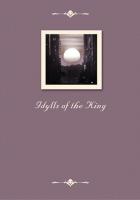PIERRE waked up late on the 3rd of September. His head ached, the clothes in which he had slept without undressing fretted his body, and he had a vague sense in his heart of something shameful he had done the evening before. That something shameful was his talk with Captain Ramballe.
His watch told him it was eleven, but it seemed a particularly dull day. Pierre stood up, rubbed his eyes, and seeing the pistol with its engraved stock—Gerasim had put it back on the writing-table—Pierre remembered where he was and what was in store for him that day
“Am I not too late already?” Pierre wondered.
No, probably he would not make his entry into Moscow before twelve o’clock. Pierre did not allow himself to reflect on what lay before him, but made haste to act.
Setting his clothes to rights, Pierre took up the pistol and was about to set off. But then for the first time it occurred to him to wonder how, if not in his hand, he was to carry the weapon in the street. Even under his full coat it would be hard to conceal a big pistol. It could not be put in his sash, nor under his arm, without being noticeable. Moreover, the pistol was now unloaded, and Pierre could not succeed in reloading it in time. “The dagger will do as well,” Pierre said to himself; though, in considering how he should carry out his design, he had more than once decided that the great mistake made by the student in 1809 was that he had tried to kill Napoleon with a dagger. But Pierre’s chief aim seemed to be, not so much to succeed in his project, as to prove to himself that he was not renouncing his design, but was doing everything to carry it out. Pierre hurriedly took the blunt, notched dagger in a green scabbard, which he had bought, together with the pistol, at the Suharev Tower, and hid it under his waistcoat.
Tying the sash round his peasant’s coat, and pulling his cap forward, Pierre walked along the corridor, trying to avoid ****** a noise and meeting the captain, and slipped out into the street.
The fire, at which he had gazed so indifferently the evening before, had sensibly increased during the night. Moscow was on fire at various points. There were fires at the same time in Carriage Row, Zamoskvoryetche, the Bazaar, and Povarsky, and the timber market near Dorogomilov bridge and the barges in the river Moskva were in a blaze.
Pierre’s way lay across a side street to Povarsky, and from there across Arbaty to the chapel of Nikola Yavlenny, where he had long before in his fancy fixed on the spot at which the deed ought to be done. Most of the houses had their gates and shutters closed. The streets and lanes were deserted; there was a smell of burning and smoke in the air. Now and then he met Russians with uneasy and timid faces, and Frenchmen with a look of the camp about them, walking in the middle of the road. Both looked at Pierre with surprise. Apart from his great height and stoutness, and the look of gloomy concentration and suffering in his face and whole figure, Russians stared at Pierre because they could not make out to what class he belonged. Frenchmen looked after him with surprise, because, while all other Russians stared timidly and inquisitively at them, Pierre walked by without noticing them. At the gates of a house, three Frenchmen, disputing about something with some Russians, who did not understand their meaning, stopped Pierre to ask whether he knew French.
Pierre shook his head and walked on. In another lane a sentinel, on guard by a green caisson, shouted at him, and it was only at the repetition of his menacing shout, and the sound of his picking up his gun, that Pierre grasped that he ought to have passed the street on the other side. He heard and saw nothing around him. With haste and horror he bore within him his intention as something strange and fearful to him, fearing—from the experience of the previous night—to lose it. But Pierre was not destined to carry his design in safety to the spot to which he was bending his steps. Moreover, if he had not been detained on the road, his design could not have been carried out, because Napoleon had four hours earlier left the Dorogomilov suburb, and crossed Arbaty to the Kremlin; and he was by then sitting in the royal study in the Kremlin palace in the gloomiest temper, giving circumstantial orders for immediately extinguishing the fires, preventing pillage, and reassuring the inhabitants. But Pierre knew nothing of that; entirely engrossed in what lay before him, he was suffering the anguish men suffer when they persist in undertaking a task impossible for them—not from its inherent difficulties, but from its incompatibility with their own nature. He was tortured by the dread that he would be weak at the decisive moment, and so would lose his respect for himself.
Though he saw and heard nothing around him, he instinctively found his way, and took the right turning to reach Povarsky.
As Pierre got nearer to Povarsky Street, the smoke grew thicker and thicker, and the air was positively warm from the heat of the conflagration. Tongues of flame shot up here and there behind the house-tops. He met more people in the streets, and these people were in great excitement. But though Pierre felt that something unusual was happening around him, he did not grasp the fact that he was getting near the fire. As he walked along a path, across the large open space adjoining on one side Povarsky Street, and on the other side the gardens of Prince Gruzinsky, Pierre suddenly heard close by him the sound of a woman, crying desperately. He stood still, as though awakened from a dream, and raised his head.














